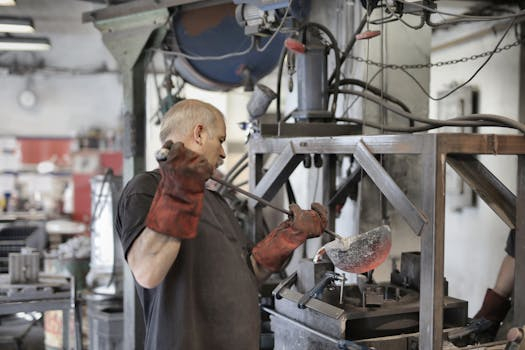Nano-Scale Manufacturing: Precision Vehicle Production
The automotive industry has come a long way since the days of the assembly line. With advances in technology and manufacturing techniques, vehicles are now being produced with an unparalleled level of precision. One such technique that has emerged in recent years is nano-scale manufacturing, which is revolutionizing the way vehicles are produced. In this article, we will explore the concept of nano-scale manufacturing and its implications for precision vehicle production.
What is Nano-Scale Manufacturing?
Nano-scale manufacturing involves the production of materials and structures at a miniature level, typically 100 nanometers or smaller. To put this into perspective, a human hair is approximately 100,000 nanometers in diameter. This level of precision allows for the manipulation and control of matter at an atomic level, resulting in highly efficient and accurate production processes.
The Role of Nanotechnology in Vehicle Production
The automotive industry has been quick to adopt nanotechnology in the manufacturing process. From the chassis to the engine and even the paint, nanomaterials are being used to enhance the performance and efficiency of vehicles.
For instance, the use of carbon nanotubes in the production of car bodies has greatly improved their strength and durability. These tiny structures are incredibly strong, yet lightweight, making them ideal for strengthening materials that would otherwise be too heavy. This has resulted in vehicles that are not only stronger and safer but also more fuel-efficient.
Another way nanotechnology is being utilized in vehicle production is through the use of nano-ceramics in the coating of engine parts. This coating provides a protective layer that reduces friction and wear, resulting in a more efficient and longer-lasting engine. This also means that vehicles are able to run smoother and require less maintenance, resulting in cost savings for both manufacturers and consumers.
The Advantages of Precision Vehicle Production
Nano-scale manufacturing has significant advantages in precision vehicle production. By utilizing nanotechnology, manufacturers are able to create more accurate and consistent components, ultimately resulting in a better-quality product.
The use of nanotechnology also allows for more intricate designs and shapes to be produced with greater precision. This is particularly beneficial in the production of engine components, where even the smallest deviation can greatly impact performance. With nano-scale manufacturing, manufacturers are able to produce engine parts with an unmatched level of precision, resulting in improved performance and efficiency.
Driven by the constant demand for lighter and more fuel-efficient vehicles, nano-scale manufacturing is also leading to the production of ultra-lightweight materials. Carbon nanofibers, for example, are being used in the production of vehicle parts such as spoilers, hoods, and even wheels. By using these lightweight materials, manufacturers are able to reduce the overall weight of the vehicle without compromising on strength, resulting in improved fuel efficiency and performance.
The Future of Precision Vehicle Production
The use of nanotechnology in vehicle production is still in its early stages, and the potential for its application is vast. From creating self-healing paint to developing new battery technologies, the possibilities for nanotechnology in the automotive industry are endless.
As technology continues to advance, we can expect to see even more precision in vehicle production, resulting in more efficient, safer, and environmentally-friendly vehicles. By harnessing the power of nanotechnology, manufacturers are laying the foundation for the future of precision vehicle production.
Closing Thoughts
Nano-scale manufacturing is transforming the automotive industry, making precision vehicle production a reality. With its many advantages, from improved performance to cost savings, it is clear that nanotechnology has a significant role to play in the future of vehicle manufacturing. With continued advancements and research, we can only expect to see even greater innovations in the production of precision vehicles in the years to come.











